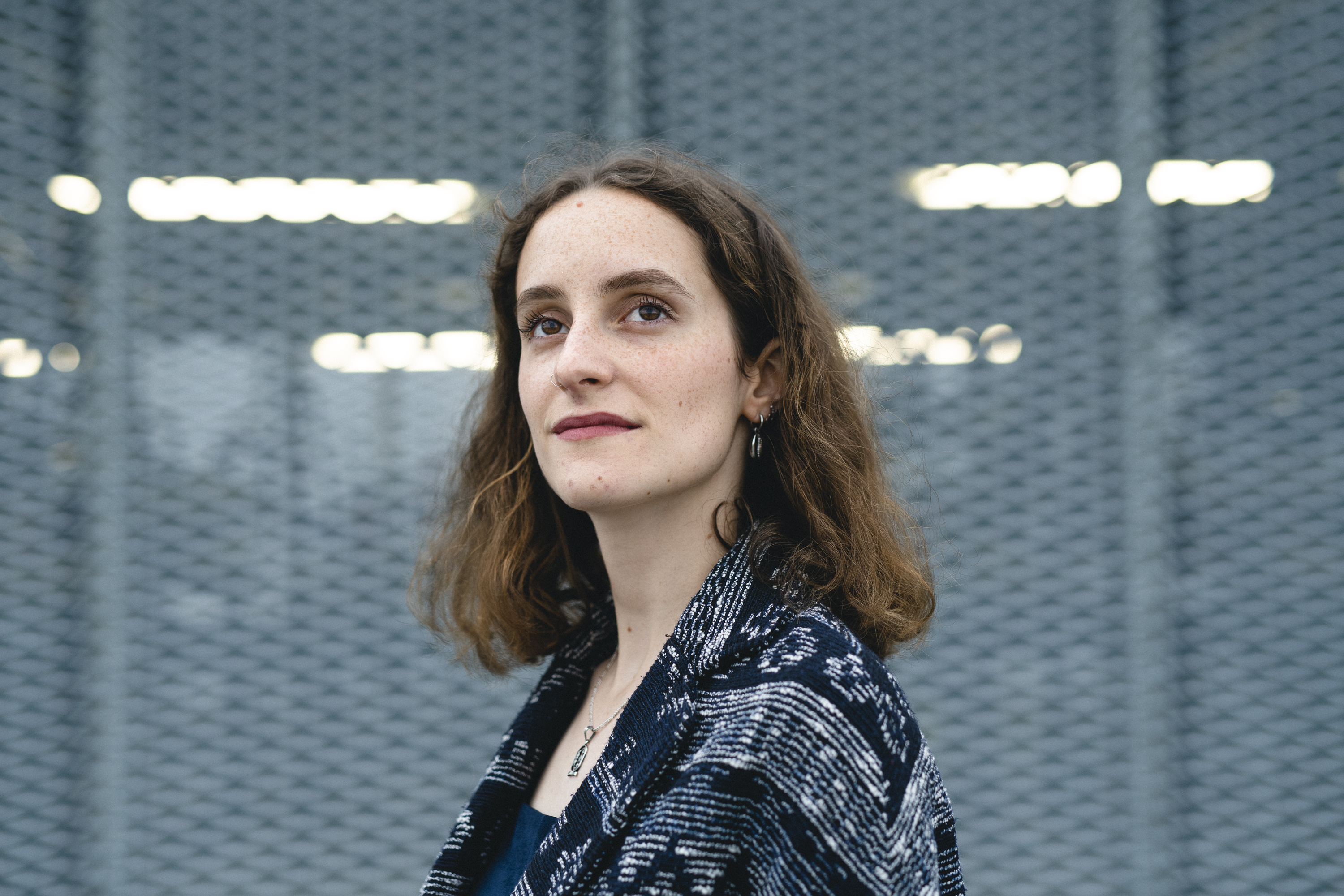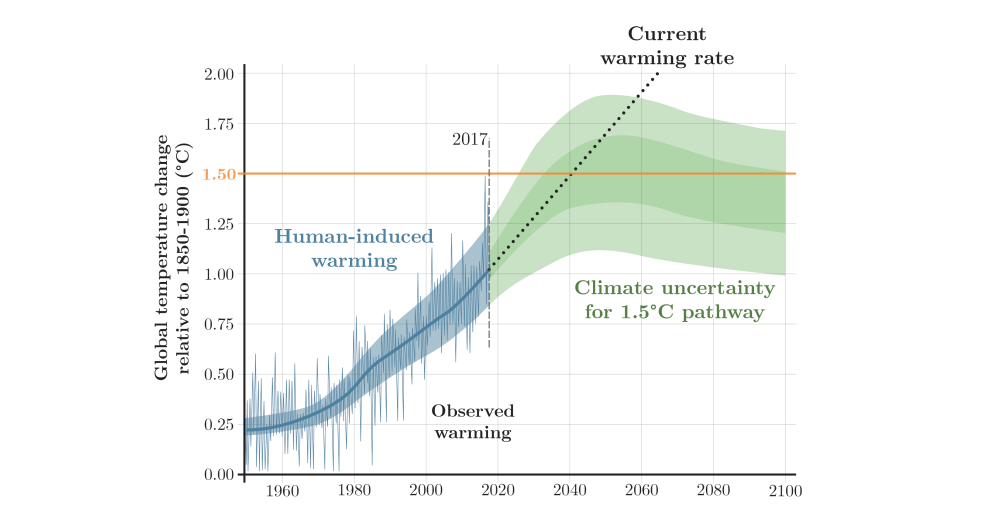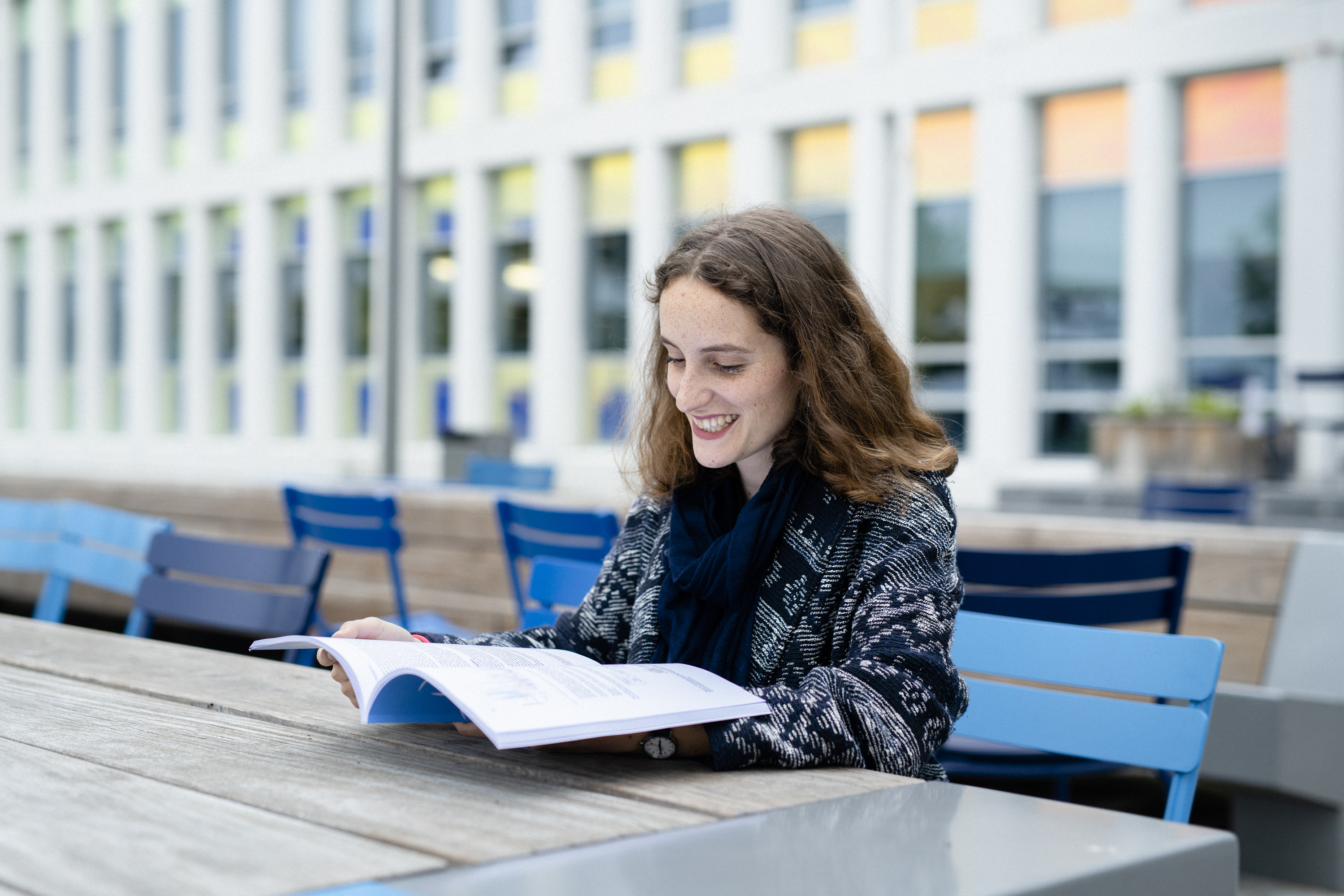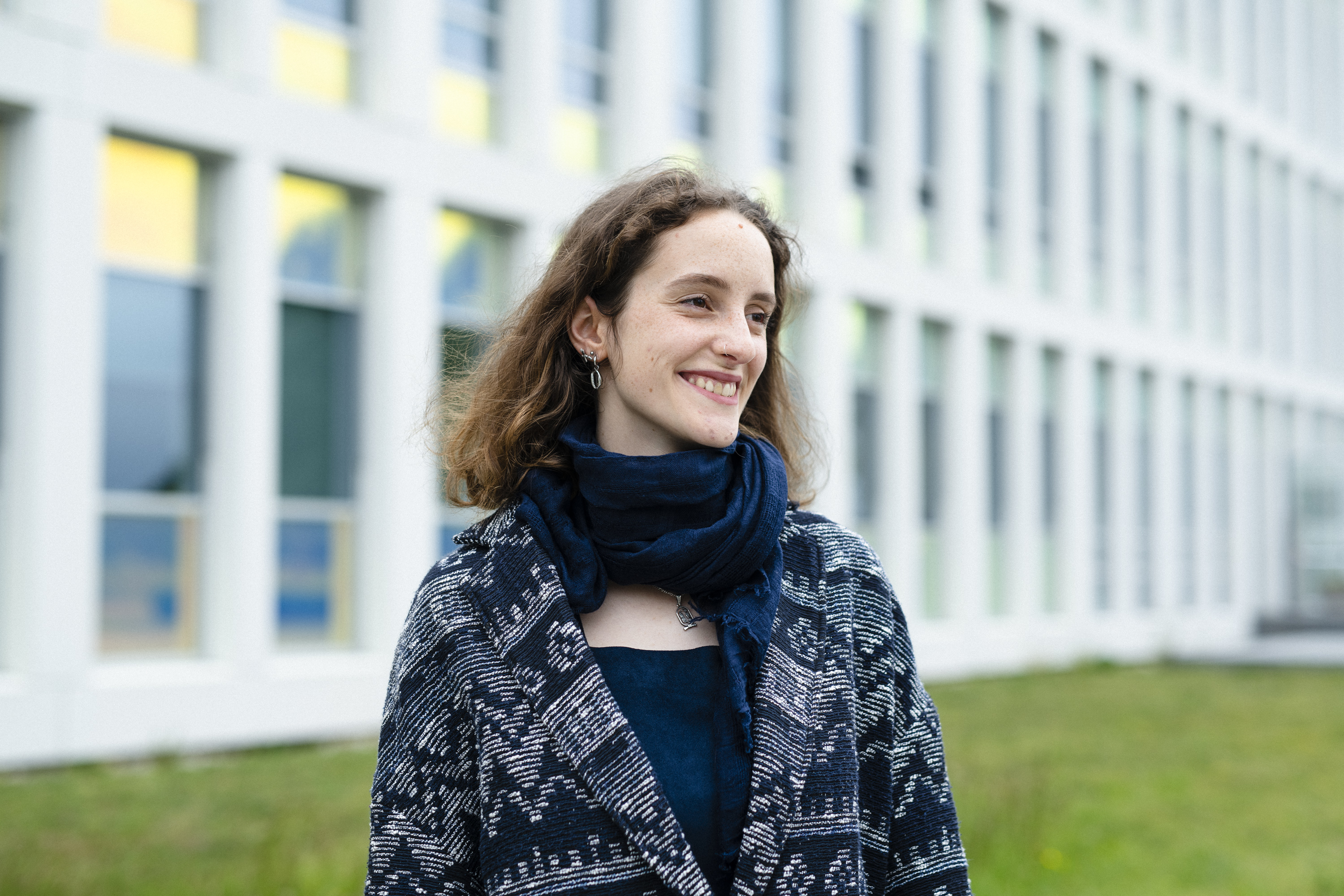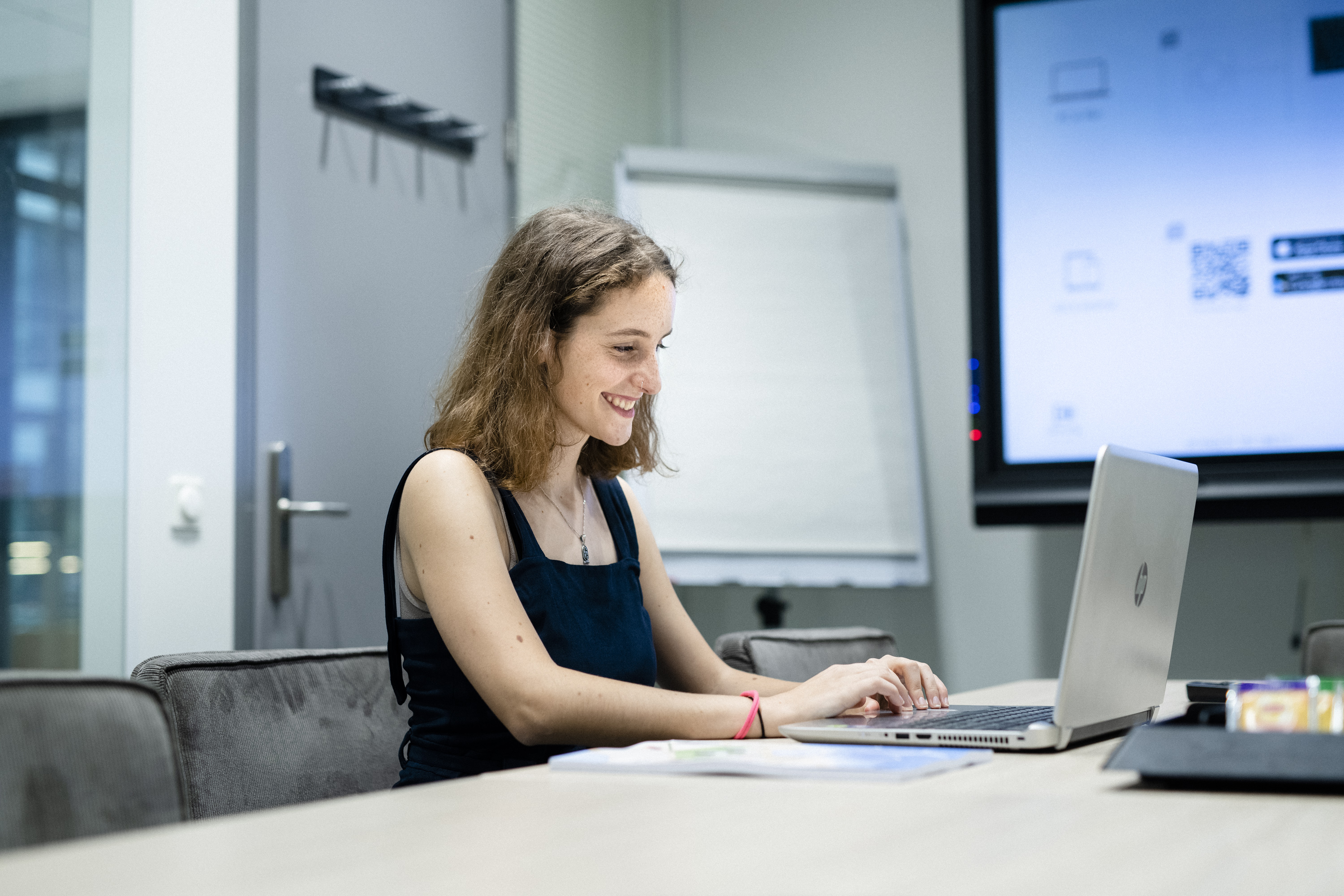Working towards steady sources of renewable energy
Veronica Torri
Veronica Torri started her Master’s in Chemical Engineering at TU Delft two years ago. For her thesis, she decided to work with the university’s e-Refinery, a project aimed at promoting the use of renewable energy and its storage. “The issue lately is with greenhouse emissions and the focus is on how to re-invent carbon dioxide into something useful.” Her research combines Process Engineering and Policy Analysis to industrialise the procedure of carbon capture and usage. It provides a mechanism to use greener sources of energy. Here, Veronica talks about her thesis, her rain jacket, Bollywood dancing and more.
Text by Padmini Manivannan, MSc Electrical Engineering and photos by Marieke Odekerken
Veronica looks like how you’d imagine a chic Italian woman would look like. She’s not too tall and has an admirable spunk that is very charming. We find a cosy spot to sit down for a chat in the beautiful applied sciences building.
“We need steady energy”
“It feels like the end of an era, “ she says nostalgically, “but I am looking forward to presenting my thesis next week.” Veronica worked on her thesis with TU Delft’s e-refinery. “The ‘e’ stands for electron.” The e-refinery initiative works towards the sustainable production of chemicals and fuels. Broadly, they aim to achieve the following goals: energy systems which have no net greenhouse gas emissions, long-term energy storage and a de-fossilized chemical industry. The refinery includes a strong academic community working closely with the government and industry partners for effective knowledge transfer and development. “Nowadays we talk lightly about renewables, but we need steady energy – if I need it, I am going to use it; if I don’t need it, I’m going to store it.”
Veronica’s work combines various processes that are currently researched at a laboratory level and scales them up to an industrial level. Each step is modelled and optimised for use on a much larger scale. The bottlenecks are studied, and effective, renewable alternatives are provided. She tries to explain it to me in layman’s terms but it gets very technical very quickly. “Okay, so the first step is to convert carbon dioxide into something useful, and in my case, that is methanol, which can be used as a feedstock or as a source of fuel (diluted with gasoline). This is done using an electrolyser, which is a type of reactor. It works somewhat like an inverted battery – you provide it with electricity which helps transform the input carbon dioxide into methanol.” She then studies the technical and economic feasibility of the combined systems. The next step is where she really gets innovative. “Once everything worked on a large scale with a steady source of energy, I started to think about adding wind energy as a source of electricity to the electrolyser.” This aims to reduce the carbon footprint and make the process more green.
She enthusiastically goes into much more detail, and if the reader is interested, it will be possible to find the full thesis at the TU Delft repository. I comment that it's quite a big picture to process. “Yeah, it is the last week of my thesis and I’m still processing,” she laughs. “But I really enjoyed working on this topic because I think it is a discipline that actively helps the society.” She shows me her newly printed thesis, a little giddy with excitement. “I just printed it out yesterday and I felt very proud. Except for the cover picture, everything else inside it is mine.” I ask her what were the challenges she faced during this period. “Right now it might sound like a straightforward process but for me, at each step of the thesis, I was faced with a wall. So you just go back and try again.” The thesis wasn’t a well-defined proposal in the beginning. “I had the freedom to pick my own options and shape it the way I wanted to. This was nice but also challenging because when you have so much freedom, you also have a lot of responsibility.”
“I really enjoyed working on this topic because I think it is a discipline that actively helps the society”
Veronica is very aware and appreciative of the positive influences surrounding her. She sounds a bit emotional when she says, “I feel really blessed to have so many good friends who kept encouraging me. You can be so invested in the thesis that a failure in the thesis can feel like a failure in life. You have to remember that although the thesis is a big part of your life right now, it is not really your whole life. But at the end of the day, it was really interesting and so much fun to do.”
Moving on to some lighter topics, we talk about what she likes to do in her free time. “I like to keep myself busy. When I am not working, I like to watch movies and hang out with my friends. I also dance. We do Bollywood and hip-hop dancing at the Delftse Dance Crew. I used to do ballet back in Italy but had to stop because of an injury. But it's good to get back into dancing!” Coming to the Netherlands opened up a lot of avenues for Veronica. “I like the place. I improved my soft skills, met so many different people and organised stuff for the Chemical Engineering study association. I like how forthcoming the people are and I don’t even mind the rain. I have my super fancy (read ugly) rain pants and jacket. I’m not afraid of the rain,” she tells with a carefree laugh.
The innovative thesis and her master's studies led to her getting an internship in Amsterdam at Shell’s Innovation Centre. “I start my internship next week and I haven’t even defended my thesis. I am going to work on CO2 capture from natural gas.” She knows that right now renewables aren’t economically advantageous for the energy industry. “But being economically profitable should not be the focus,” she says, considering the ongoing climate catastrophe . Veronica’s research highlights the areas that can be further investigated and optimised. She believes there is hope. “It shows that it is, in fact, possible to create a feasible process based on renewables. I am glad I was able to bring together all these steps and make sense of it, ” she says proudly.


